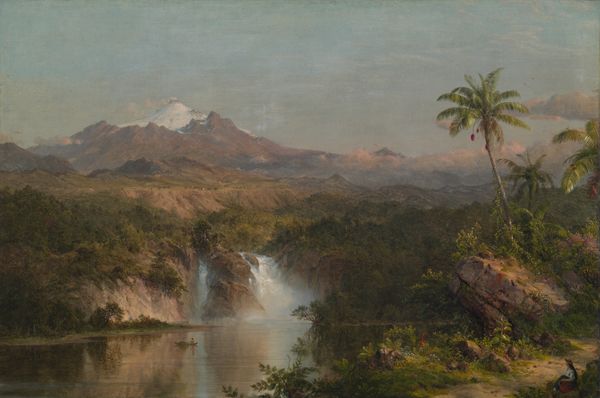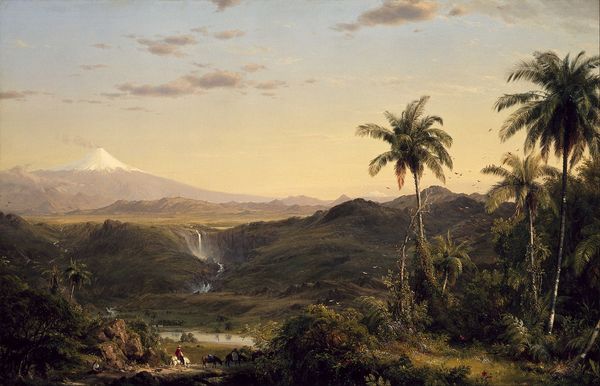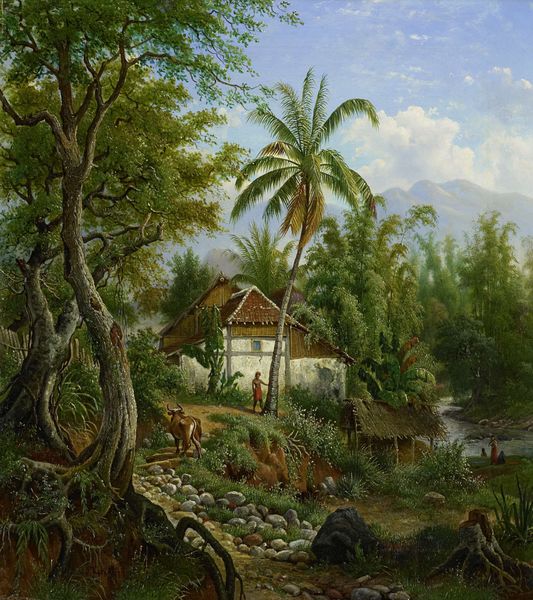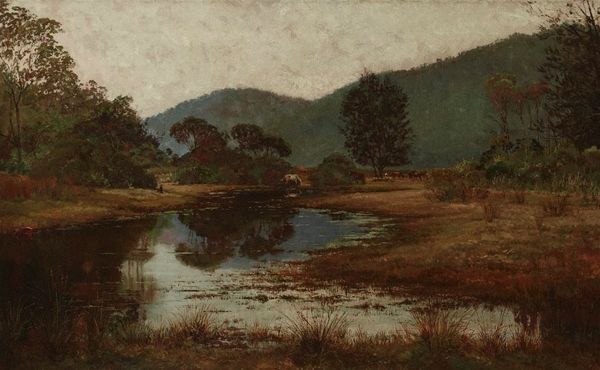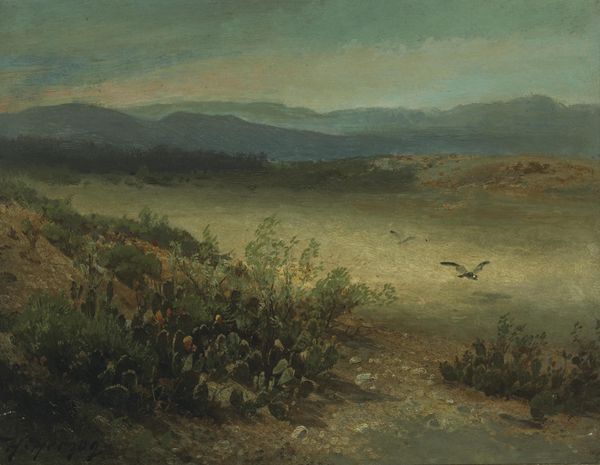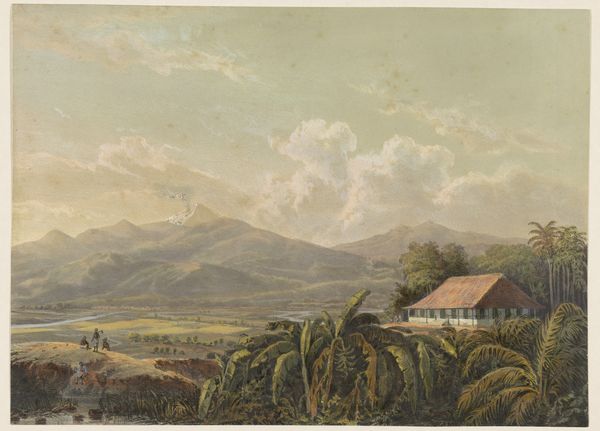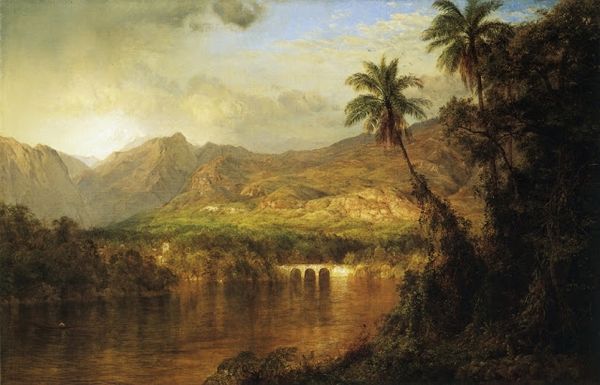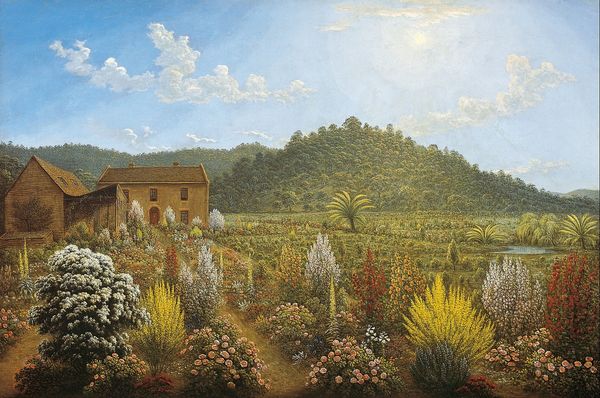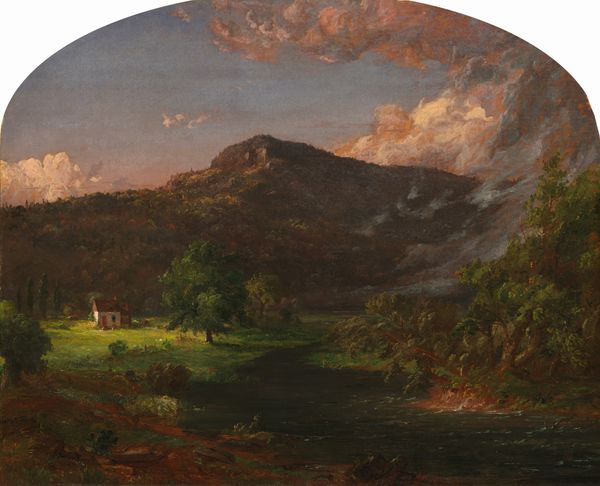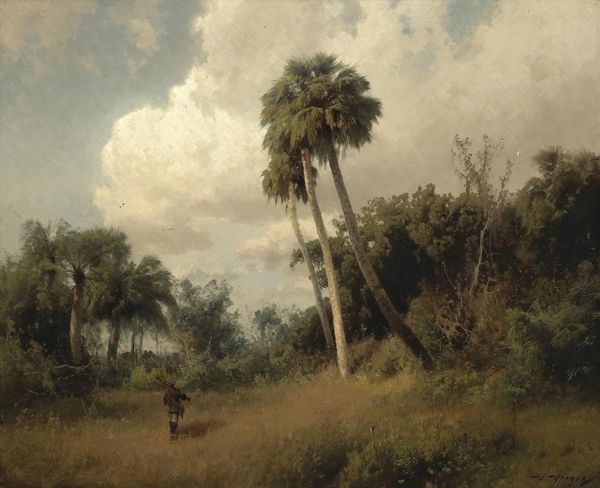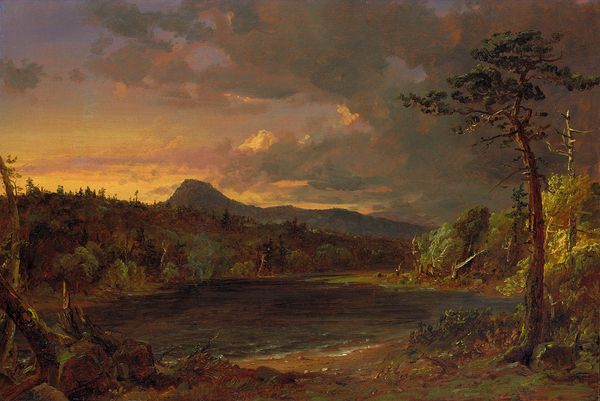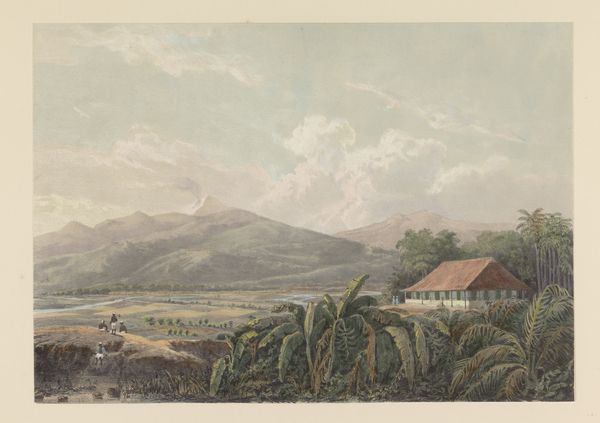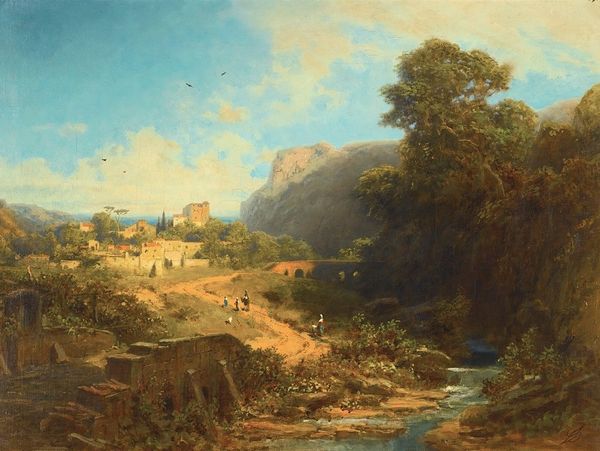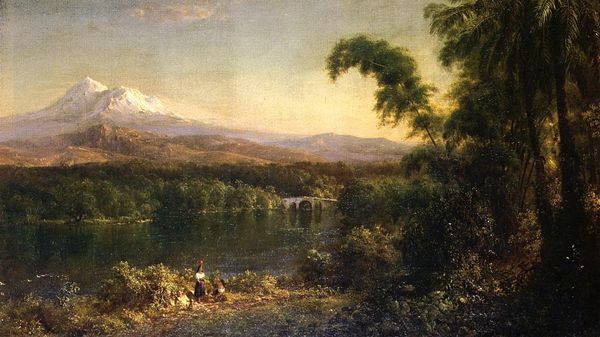
painting, plein-air, oil-paint
#
painting
#
plein-air
#
oil-paint
#
landscape
#
oil painting
#
hudson-river-school
#
realism
Copyright: Public domain
Curator: Hermann Ottomar Herzog's "Riverbank Hideaway," painted in 1857, offers a seemingly tranquil landscape scene in oil on canvas. The work places us in a somewhat romanticized view of nature. Editor: My first impression is one of almost excessive serenity. It feels deliberately staged, perhaps a bit idealized, despite its seemingly naturalistic approach. The water, the greenery—everything contributes to this very particular sensation of a manufactured Eden. Curator: Precisely, Herzog's landscape reflects the burgeoning 19th-century interest in representing idealized landscapes. There's an interesting tension between the depiction of this remote "hideaway" and the potential labor connected to its upkeep, or perhaps its use by privileged owners as leisure retreats. How are we to understand these settings within their social frameworks? Editor: I think situating it within the framework of settler colonialism is crucial. These so-called "hideaways" often occupy lands appropriated from Indigenous populations, glossing over dispossession through their aesthetic appeal. We must question whose "hideaway" this actually is and at what cost it exists. The labouring hands who build and maintain it never find their way onto the canvas; the idyllic settings deny the racialised power dynamics that determine whose body matters, whose doesn't. Curator: Good points. If we delve into the material composition, Herzog employs very subtle glazing techniques, layering the paint to create atmospheric perspective and realistic textures, such as in the rendering of foliage and water. His technical mastery underscores the narrative the work communicates, and would contribute to the high market value it could have held. The materials themselves—the pigments, the canvas—point to specific production and distribution networks prevalent during the era. Editor: Right. And, that emphasis on technical skill distracts from the fact the scene erases history by prettifying colonial space. That water reflects only an empty sky, offering no reflection on those it displaced or their labour, the artist makes an active decision, that contributes in this whitewashing. It serves the status quo of white entitlement and obscured historical brutality. Curator: Well, in viewing "Riverbank Hideaway," I am reminded of art's function as a site of both pleasure and of complicated historical meanings, one that offers itself up for reinterpretation generationally. Editor: I’d agree. The work acts as a prompt to challenge those representations. Landscapes should encourage us to ask difficult questions about the past rather than passively consume a romanticised version of it.
Comments
No comments
Be the first to comment and join the conversation on the ultimate creative platform.
